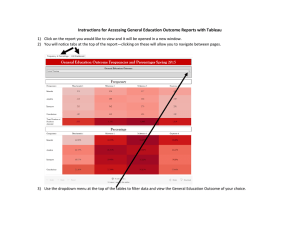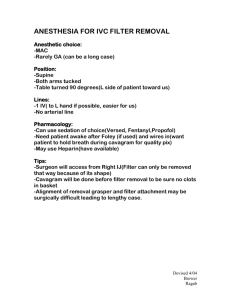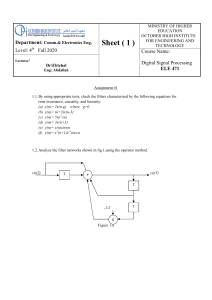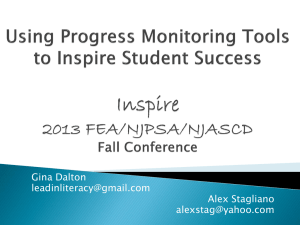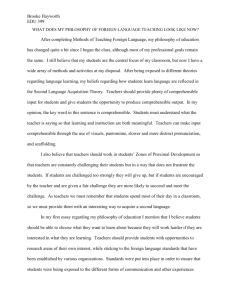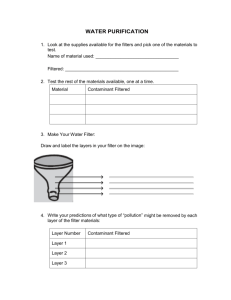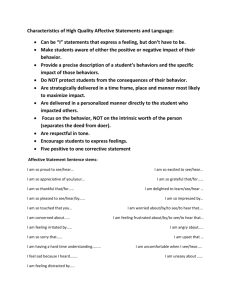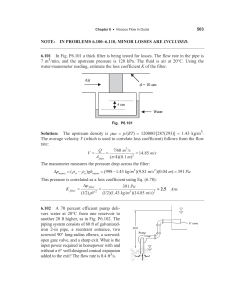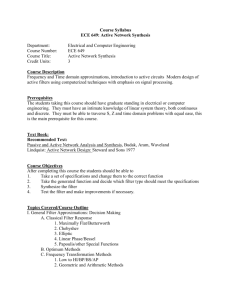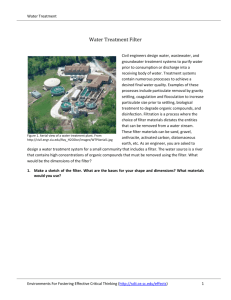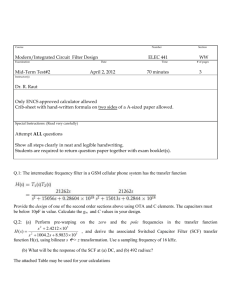Teaching Pronunciation (2hrs) – Trainer`s Notes
advertisement
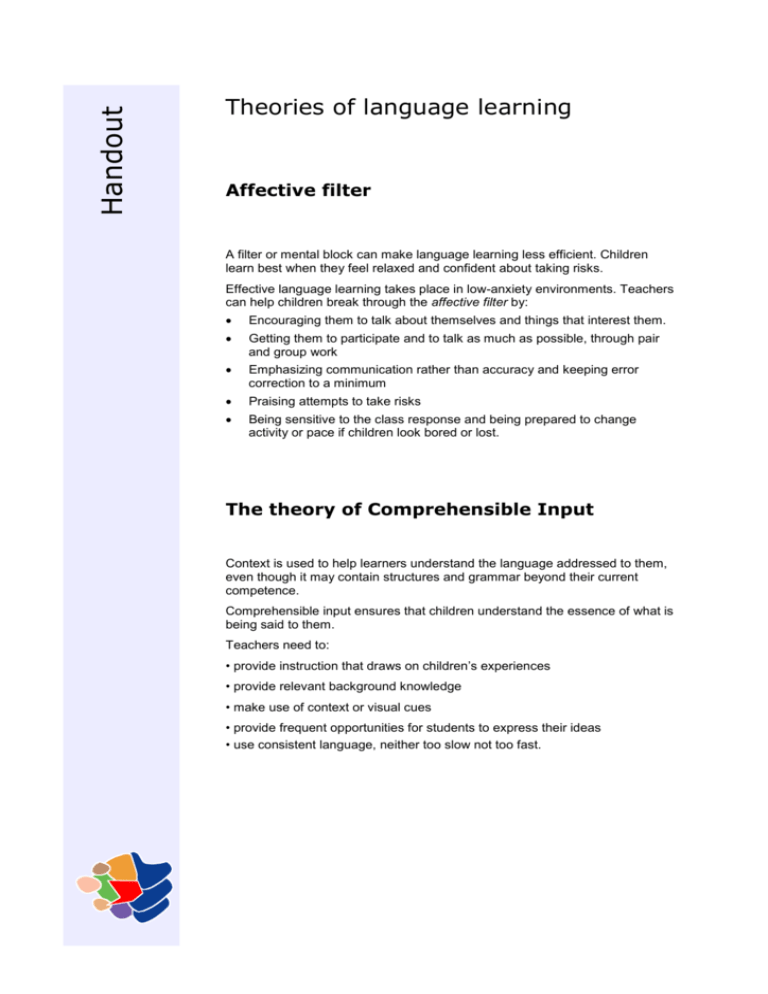
Handout Theories of language learning Affective filter A filter or mental block can make language learning less efficient. Children learn best when they feel relaxed and confident about taking risks. Effective language learning takes place in low-anxiety environments. Teachers can help children break through the affective filter by: Encouraging them to talk about themselves and things that interest them. Getting them to participate and to talk as much as possible, through pair and group work Emphasizing communication rather than accuracy and keeping error correction to a minimum Praising attempts to take risks Being sensitive to the class response and being prepared to change activity or pace if children look bored or lost. The theory of Comprehensible Input Context is used to help learners understand the language addressed to them, even though it may contain structures and grammar beyond their current competence. Comprehensible input ensures that children understand the essence of what is being said to them. Teachers need to: • provide instruction that draws on children’s experiences • provide relevant background knowledge • make use of context or visual cues • provide frequent opportunities for students to express their ideas • use consistent language, neither too slow not too fast.
